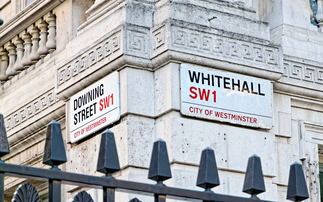Jonathan Grant and Rob Milnes warn countries like South Korea are setting their own baselines to make their climate change pledges look better than they really are
South Korea is the latest G20 country to submit its national target, though it did so shortly after China's announcement, so most of the attention went to its larger neighbour.
South Korea pledged to reduce emissions by 37 per cent below its higher carbon growth scenario by 2030. Its approach of using a scenario for a baseline, rather than absolute emissions in a specific year, is similar to Mexico's. But it does complicate matters.
Since 2000 carbon intensity in South Korea has fallen by 0.9 per cent annually, which is exactly average for G20 countries. It is also roughly what you might expect from typical energy efficiency improvements each year. Continuing this historic trend, in our Low Carbon Economy Index model (which we call 'business as usual' (BAU)), South Korea's carbon intensity will be 371 tCO2/$m in 2030, down from around 430 today. To reach its target, South Korea has to reduce carbon intensity to around 206 tCO2/$m, which is where the EU was in 2014.
Compared with our BAU, South Korea will have to reduce carbon intensity by 4.5 per cent every year to achieve its target, assuming economic growth of 2.9 per cent over the next 15 years. This is a substantial shift from the 0.9 per cent it has been achieving recently.
However, South Korea's baseline, which it also refers to as BAU, is a scenario in which emissions continue to rise out to 2030. In this scenario, South Korea expects its emissions will be lower than in our LCEI business as usual. So perhaps South Korea's target isn't quite as ambitious as it first appears.
All this reinforces the point made by commentators that the INDCs are a mess - using different base years, target years and BAU baselines makes them very difficult to compare. This resulted from the failure in Lima to agree a consistent approach. And it's uncanny how all countries choose baselines that make their targets look good. We have done our best to tidy them up with these charts.

Jonathan Grant and Rob Milnes work in PwC's sustainability and climate change team.
This article is part of BusinessGreen's Road to Paris hub, hosted in association with PwC.








